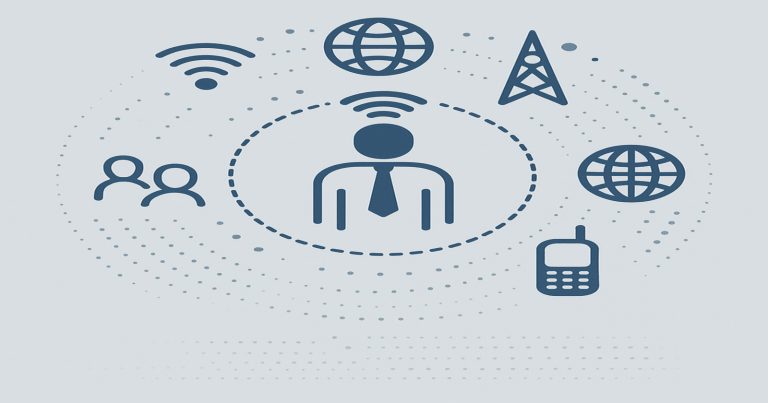Telecom services are one of the most essential businesses in today’s world. They connect people and industries from all over the globe with voice, data, and multimedia. The telecom service industry helps close long distances. It allows individual and business communication through various technological and service packages. It varies from traditional phone calls to more advanced internet communications. To answer the question of what telecom services are. They include all technologies that enable information exchange across distances.
What do You Mean by Telecom Services?
Telecom services refer to communication and broadcasting services over wired or wireless networks. Telecom services allow people, firms, and governments to share information across the globe. This is a treasure beneath their facades, both in daily life and business. The telecom services’ meaning is to enable fast, secure, and seamless global communication. It is delivered by trusted telecom service providers worldwide.
Key Components of Telecom Services
These services form the backbone of communication networks. They connect communities and businesses worldwide. Telecom service providers develop and manage these systems to maintain connectivity and performance.
- Voice Communication: Traditional and mobile phone services are fundamental telecom services.
- Data Transmission: Internet connectivity, including broadband and mobile data, is maintained by leading telecom service providers.
- Multimedia Services: Video calling, streaming, and digital TV. All enhanced by innovative telecom service models.
Importance of Telecommunication Services
They have changed how people connect and businesses operate. It is critical to economic development, innovation, and generally societal growth. This further highlights the importance of telecom services in the modern world.
Benefits of Telecommunication Services
Telecommunications services are a pivotal supporting force in beneficial global activities. It helps in fostering innovation and international connectivity.
- Boosts business operations: with global communications as well as transactions across borders. New Jobs are created in Information Technology, telecommunications, customer service, and infrastructure development.
- Social Connectivity: It bridges distances and geographies. Enabling individuals to keep in touch with their friends and family. Social networking platform development improves real-time interactions.
- Innovation and progress: Technology change fosters growth in health and education. Encourages innovation in digital services like mobile apps, IoT, and cloud computing. All supported by dynamic telecom service providers.
- Business Expansion: To permit organisations to reach global markets and make exports and international partnerships possible. Aids in remote work and flexible business models, thus increasing productivity through enabled telecommunications.
Features of Telecommunication Services
The extent to which features of telecommunication services come with them will define how they will effectively provide seamless communication across different platforms. These features generally determine the reliability, speed, and accessibility of telecommunication services. They are maintained by some of the best-known telecom operators around the globe.
- Wide Coverage: Telecom networks have extensive reach. It covers urban, rural, and even remote areas, making telecom service accessible to all.
- Superfast speed: High-speed data transfer rate measure for internet, video streaming, and online gaming.
- Growth Potential: Depending on user demand, telecommunications will be built at strong levels to provide services.
- Reliability: It assures that all services will not be interrupted.
- Mobility: Telecommunications customers can be connected from anywhere and at any time, through the continuous efforts of telecom service providers and their customer service units to promote mobile communications.
Types of Telecom Services
Telecom services are classified by their nature and functionality. Voice, data, and multimedia services comprise telecom services. Every single one serves a particular purpose in the spectrum of communication.
Major Types
Throughout all of these services, telecom customer service plays a vital role in ensuring smooth operation and problem resolution.
Voice Services
- Fixed-Line Services: Traditional landline telephone connections.
- Mobile Services: Cellular services enabling voice communication on the go. These are basic yet crucial telecom services supported by major telecom service providers.
Internet Services
- Broadband: High-speed internet connections, including DSL, cable, and fibre optics.
- Wireless Internet: Mobile data services using 4G, 5G, and other wireless technologies.
Multimedia Services
These services serve different purposes in communication, from the simplest phone calls to complex digital transactions.
- Video Conferencing: Platforms for virtual meetings and distance collaboration.
- Digital TV: Broadcasting channels and streaming offers.
- Data and Messaging Services: SMS and MMS- instant text and multimedia messaging. Data transmission services for secure file sharing and email communications.
Different Types of Telecom Services and How They Impact the Industry
The different types of telecom services create enormous benefits for the industry through innovation, connectivity, and the advancement of technologies. As the changes in these kinds of services occur, their effects are seen in other sectors like IT and engineering, healthcare and medical services, finance and stock, and entertainment and leisure.
Impact on the Industry
These telecom services are changing entire industries through efficiency enhancement, cost reduction, and improvement of user experiences.
- An Upscaler For Digital Ecosystem: Digital platforms assist the growth of digital ecosystems encompassing e-commerce, social media, and online entertainment. They further enhance the growth of cloud and data analytics services.
- Technological advancements: using populations of 5G networks for next-gen speeds to improve portable internet speeds. Drives innovations in artificial intelligence, Iot, and machine learning—all supported by the best telecom service providers.
- Globalisation enables businesses to operate globally, reaching international customers. Encourages cross-border collaborations, leading to a more integrated global economy.
- Green Initiatives: Telecom Operators are making a round-the-clock effort to make their services and operations eco-friendly to minimise their carbon footprints. They also promote the application of newer technologies for energy-efficient management.
Telecom Services FAQs
1. What are telecom services?
Telecom services include voice calls, internet, video conferencing, and messaging through wired and wireless networks. Telecom service providers across the world provide these services.
2. What is the meaning of telecom services?
Telecom services transmit data, voice, and video using communication technologies. It includes fixed-line phones, mobile networks, broadband, and digital services.
3. Who are telecom service providers?
Telecom providers offer services like calling, internet access, and multimedia broadcasting. They maintain the infrastructure and deliver telecom services to users.
4. What is telecom customer service?
Telecom customer service is the support system telecom companies provide to help customers solve network, billing, or service-related issues efficiently and quickly.
5. How do telecom services impact our lives?
Telecom services help in daily communication, business growth, and access to education, health, and financial services. These services ensure that people and industries stay connected at all times.


